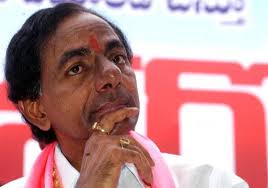
The talks between TRS and Congress have got into difficulties over the number of seats each will contest in the newly-formed Telangana state, particularly for the 119-member Assembly, sources said.
TRS is demanding a bigger chunk of seats than Congress, an issue that has led to sharp differences between them, they said but did not specify how many the regional party wants.
"As of now, we are not holding any formal talks with Congress or bargaining over seat sharing. We would need the adequate number of seats from the Congress that would help us to form the Government," a TRS leader stated.
In the meanwhile, TRS has opened a channel of communication with BJP for an alliance.
"Our informal talks began after we rejected the demand for a merger with Congress," the party leader said.
The TRS is of the view that it might require the support of BJP if the party comes to power at the Centre.
To justify its reaching out to BJP, the TRS leaders point out that the party had helped the passage of the Telangana Bill in Parliament.
"We are of the view that BJP is likely to form the next Government in Delhi. Under such circumstances we would need their support for the development of Telangana," the sources claimed.
The development comes as a huge blow for Congress, which was hoping for the merger of TRS with it, though the regional outfit had refused the demand due to stiff opposition from party leaders.
Interestingly, AICC general secretary, in-charge of Andhra Pradesh affairs, Digvijay Singh reached Hyderabad today on a three-day visit to launch an exercise for selecting party candidates for the ensuing elections to Lok Sabha and state Assembly.





Comments
Add new comment